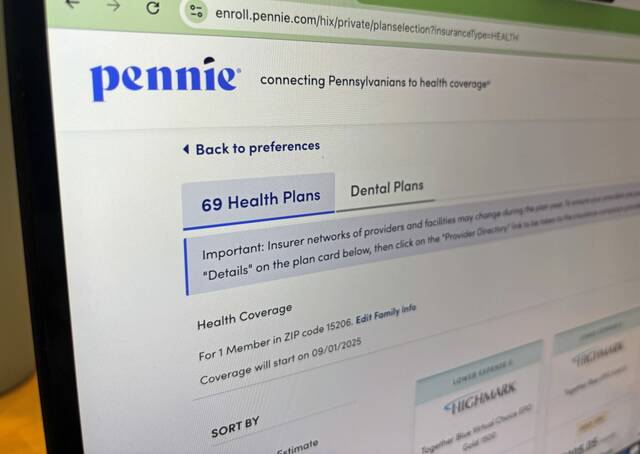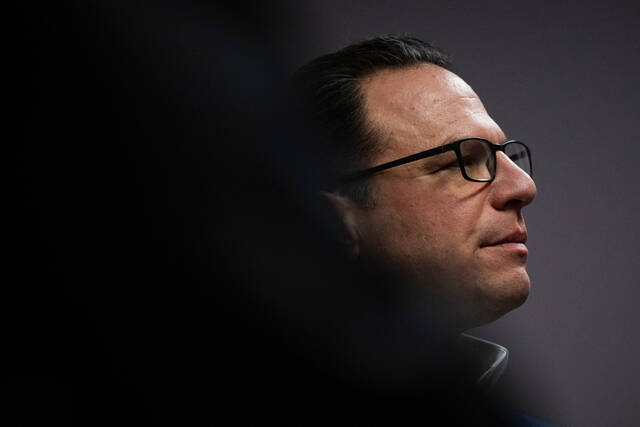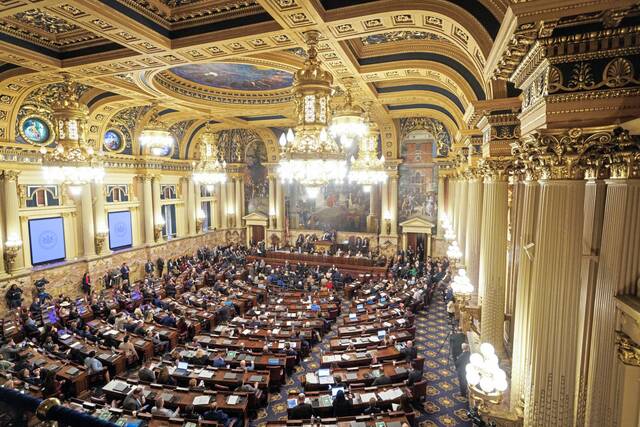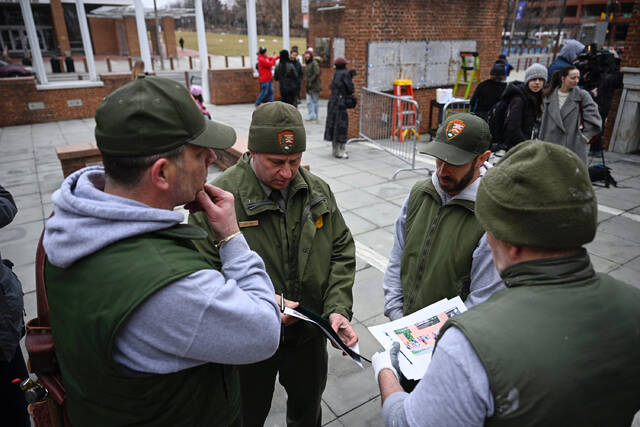The end of enhanced Obamacare subsidies could be even more costly than initially feared for Pennsylvanians who use the health insurance program.
Pennie, the state’s Affordable Care Act health insurance exchange, now estimates the average enrollee will see premiums climb 102% if Congress lets the subsidies expire at the end of the year.
That would more than double monthly costs on average. The exchange initially projected an 82% hike.
Southwestern Pennsylvania is in slightly better shape than other parts of the state, with Allegheny and Westmoreland counties slated for 75% and 46% increases, respectively.
That’s in part because premiums in the region were already so high, according to Devon Trolley, Pennie’s executive director.
Juniata County, in Central Pennsylvania, would have it worst, with an estimated 485% rise in premiums on the horizon. Counties like this are “catching up to the rest of the state” on prices, Trolley said.
Even if the subsidies are maintained, the average cost of individual coverage on the exchange will climb nearly 22%.
The new figures from Pennie are based on updated data used to calculate who gets subsidies and to what extent.
Most people with Affordable Care Act coverage are self-employed, own a small business, work for a small business or are retired and waiting to become eligible for Medicare.
Pennie’s calculations are also the result of the Pennsylvania Insurance Commission approving higher premiums for next year.
The commission, which announced the rates Tuesday, is tasked with vetting the cost of plans on Pennie.
“These increases are higher than in recent years, even after (the commission’s) strong rate review process blocked a number of excessive increases that insurers requested,” Pennsylvania Insurance Commissioner Michael Humphries said in a statement.
The insurance commission partly attributes the rise to uncertainty over the subsidies and says it will lower rates if they’re extended.
Higher premiums, the thinking in the insurance industry goes, tend to drive away cheaper, healthier patients and leave a pool of sicker, more expensive patients behind.
Pennie’s projected 102% increase reflects a double whammy for people who rely on Pennie to secure cheaper insurance than they could through their employer or the private market.
The 2010 Affordable Care Act eases the cost of coverage for anyone making up to about $63,000, or four times the federal poverty level. That subsidy is not going away.
It’s the more robust version of the subsidy, which deepens discounts under that income threshold and caps premiums at 8.5% of a person’s earnings, that has become a flash point in the ongoing government shutdown.
Democrats by and large are insisting the enhanced subsidy, passed in 2021 as part of a covid-19 relief measure, continue beyond its expiration date at the end of the year.
Some Republicans have signaled support for the policy, but party leadership has stood firm against including it in a funding bill.
The Nov. 1 start of open enrollment on Pennie looms. Trolley expects many people will choose to seek coverage elsewhere or skip insurance altogether if the subsidies aren’t extended by then.
“People are making those decisions of whether they can fit in a doubling of cost or not in 2026, they’re making those decisions two weeks from now, and we still don’t have an answer,” said Trolley.
Pennie estimated earlier this year 450,000 of its 500,000 users will face pricier premiums and 150,000 of them will just walk away.
The exchange does not have updated projections on how many of its users will be impacted by a 102% average increase.
Trolley said the exchange is doing everything it can to update health insurance beneficiaries on the situation.
Without any movement in Congress, Pennie will soon send notices to enrollees showing precise price increases if they stick with the same plan.
But communication has been a challenge, Trolley noted. Emails are ignored, mailers get discarded and phone calls go unanswered.
Despite the showdown over health care, she’s worried some enrollees might get caught off guard if their premiums skyrocket.
“It is really hard to get in touch with people,” Trolley said.








